Find Help
More Items From Ergsy search
-
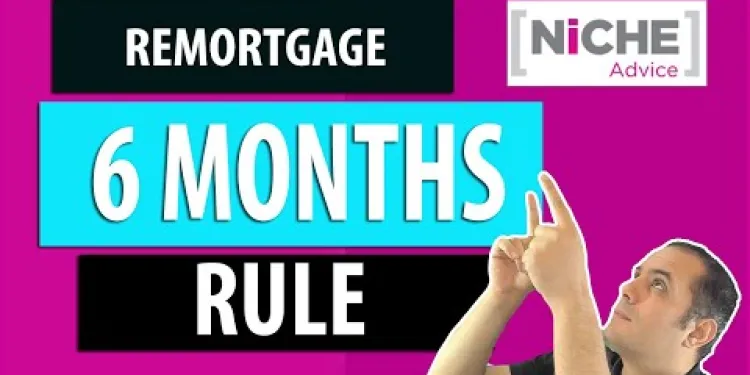
Remortgage within 6 Months on the open market value Residential or Buy to Let Properties
Relevance: 100%
-

How to Buy property with your children under the age of 18 and get Buy to Let Mortgage.
Relevance: 49%
-

First Time Buyer Buy to Let Finance Options. Lending Criteria on Mortgage and Bridging Finance
Relevance: 40%
-

Can boundary disputes affect property values?
Relevance: 39%
-

First Time Buyer Buy to Let Finance Options. Lending Criteria on Mortgage and Bridging Finance
Relevance: 37%
-
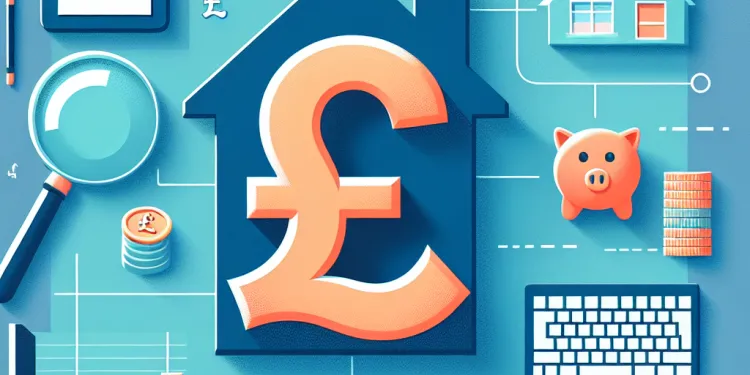
How does Stamp Duty affect shared ownership properties?
Relevance: 34%
-

Uk Buy to Let for Older Clients - Mortgage Options Tips and Criteria
Relevance: 33%
-

What is property litigation?
Relevance: 33%
-

Are there any discounts for multiple property purchases?
Relevance: 32%
-
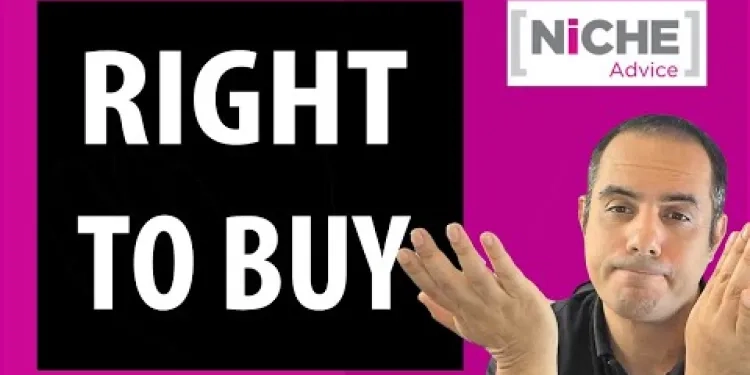
RIGHT TO BUY MORTGAGE - LET ME SAVE YOU TIME AND MONEY
Relevance: 32%
-
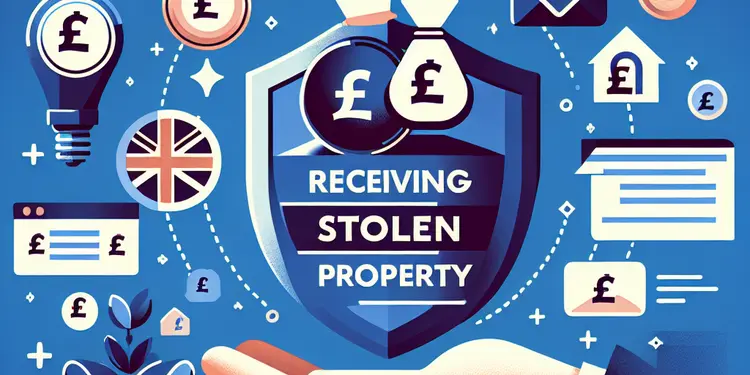
What is receiving stolen property?
Relevance: 30%
-

Can property litigation be avoided?
Relevance: 29%
-
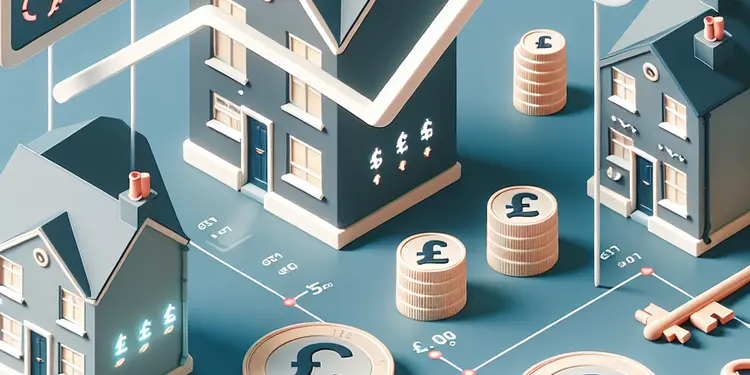
Rising Property Prices Fuel Concerns Over First-Time Buyer Accessibility
Relevance: 29%
-
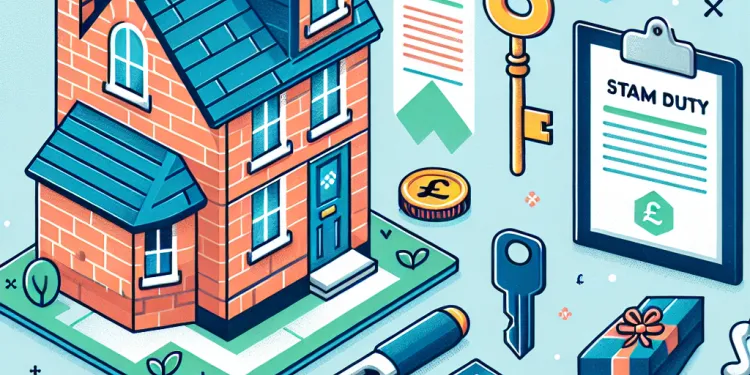
What properties are exempt from Stamp Duty?
Relevance: 29%
-
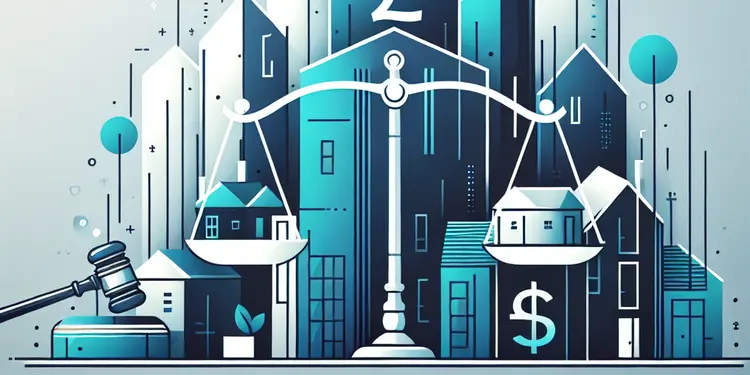
What are some common outcomes of property litigation?
Relevance: 28%
-

How important is a property survey in preventing boundary disputes?
Relevance: 28%
-
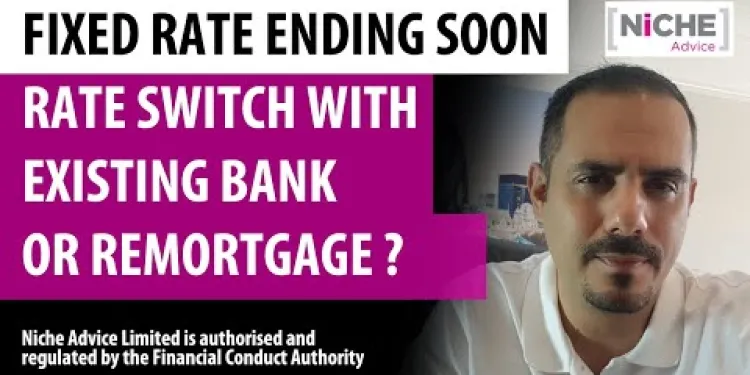
Product Transfer Rate Switch vs Remortgage What's Best
Relevance: 27%
-
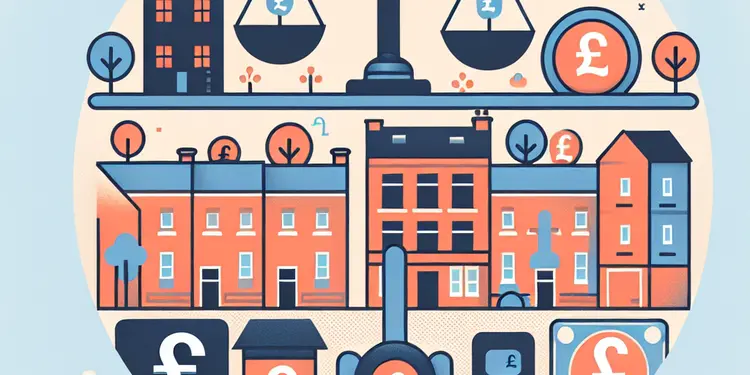
What is adverse possession in property law?
Relevance: 27%
-

Mortgage on Inherited Property - How we can help you with the finance
Relevance: 27%
-

How does one initiate property litigation?
Relevance: 27%
-

UK Estate Agent Tricks to watch out for in a heated market
Relevance: 27%
-

First Time Buyer UK - Own Outright vs Help to Buy vs Shared Ownership
Relevance: 27%
-

Are there new guidelines for property maintenance?
Relevance: 27%
-

Can I get a Buy to Let Mortgage With My 18 Year Old Son
Relevance: 27%
-

Can property litigation involve commercial real estate?
Relevance: 27%
-

Why might someone need a property litigator?
Relevance: 26%
-

What happens if a neighbor builds a fence on my property?
Relevance: 26%
-
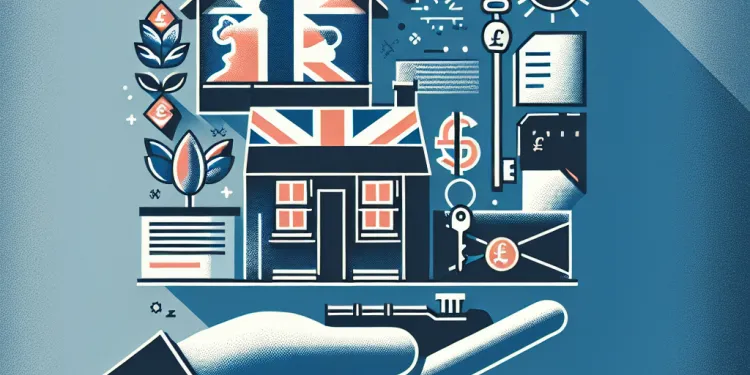
Does owning property abroad affect UK inheritance tax?
Relevance: 26%
-

Does the reform address uninhabitable properties?
Relevance: 26%
-

Can I bury a loved on on my own private property?
Relevance: 25%
-

5 Broker Exclusive Buy to Let Mortgage Lenders you need to know about as a Landlord
Relevance: 25%
-
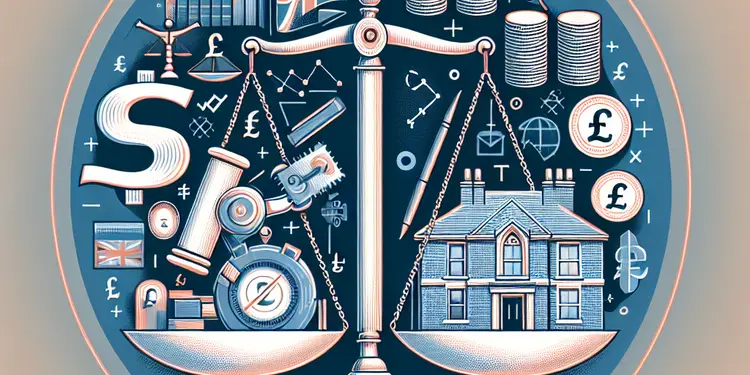
What is an easement and how does it relate to property litigation?
Relevance: 24%
-

How can a property litigator assist in lease disputes?
Relevance: 24%
-

What types of disputes are involved in property litigation?
Relevance: 23%
-

How can I tell if a security camera is pointing at my property?
Relevance: 23%
-
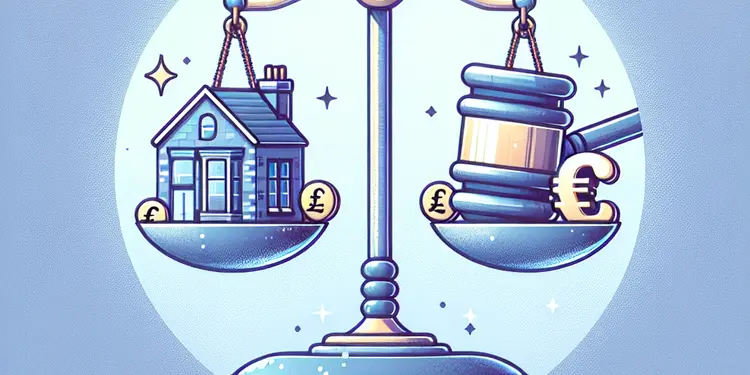
What is specific performance in property litigation?
Relevance: 23%
-
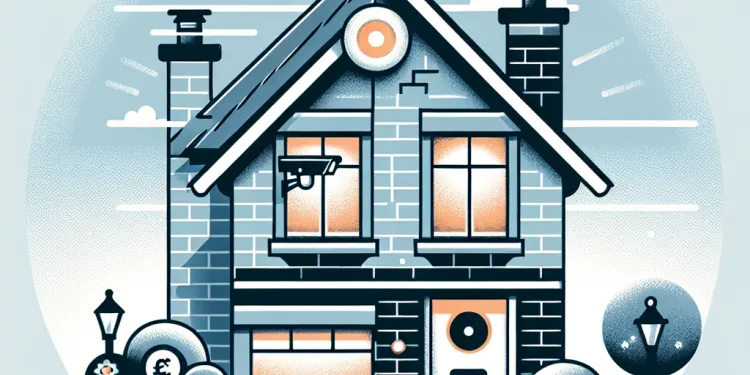
Do neighbours need to inform me if their cameras record my property?
Relevance: 23%
-

Do mosquito screens add value to my home?
Relevance: 23%
-

What about Stamp Duty in Wales?
Relevance: 23%
-

Does Scotland have a different Stamp Duty system?
Relevance: 22%
Understanding Remortgaging Within 6 Months: A Guide for UK Homeowners
Remortgaging involves taking out a new mortgage to replace your current one, often to benefit from better interest rates or to release equity. While conventional remortgaging occurs after the initial term ends, some homeowners and landlords consider remortgaging within the first 6 months. This article explores the implications and benefits of early remortgaging for both residential and buy-to-let properties in the UK.
Why Consider Remortgaging Within 6 Months?
There are several reasons homeowners or landlords might opt to remortgage within the initial 6 months. If property values have risen sharply or you have made significant improvements boosting the property's market value, an early remortgage could allow access to better deals reflecting the current property worth. Another common reason is finding a substantially better interest rate than the one initially secured, which can offer long-term savings.
Factors to Consider for Residential Properties
For those looking to remortgage residential properties, it's crucial to assess whether the new deal outweighs potential costs associated with exiting your current mortgage early. Early repayment charges (ERC) can be significant, so calculate if the savings from a lower interest rate justify the upfront charges. Additionally, ensure your credit score is favorable, as it will affect the deals available to you.
Buy-to-Let Remortgaging in the UK
Buy-to-let investors might pursue remortgaging within 6 months to leverage a growing rental market or revitalize their property portfolio through improved terms or cash extraction. However, lenders typically scrutinize buy-to-let remortgages more rigorously within short timeframes, so prepare comprehensive documentation of your rental income, expenses, and tenancy agreements to support your application.
Working with Lenders and Brokers
Not all lenders are willing to offer remortgages this early in the loan term, so it is essential to research your options or consult a mortgage broker who understands early remortgaging. A broker can help navigate the market and identify lenders with flexible policies. Always consider the total cost of borrowing over the mortgage term rather than focusing solely on the interest rate.
Conclusion
Remortgaging within 6 months on the open market value can offer strategic advantages, especially if executed correctly. However, the financial implications need careful analysis. Whether you are optimizing your residential mortgage or leveraging the benefits for buy-to-let properties, ensure every decision aligns with your long-term financial goals. Consulting with professionals and conducting comprehensive due diligence can significantly enhance the outcome.
Understanding Remortgaging Within 6 Months: A Guide for UK Homeowners
Remortgaging means getting a new mortgage to replace your old one. People do this to get better interest rates or to take out money from their property's value. Usually, remortgaging happens after the first loan period ends, but some people think about doing it in the first 6 months. This guide will explain why some UK homeowners might remortgage early and how it can help.
Why Consider Remortgaging Within 6 Months?
Homeowners or landlords might want to remortgage early for a few reasons. If the property price has gone up a lot or if you have upgraded your home, an early remortgage can get you a better deal. Also, if you find a mortgage with a much lower interest rate, it can save you money over time.
Factors to Consider for Residential Properties
If you're thinking about remortgaging your home, you need to check if the new deal is better, even after paying any fees for leaving your current mortgage early. These fees can be high, so you should see if the money saved on interest is worth it. Also, make sure your credit score is good because it affects what deals you can get.
Buy-to-Let Remortgaging in the UK
If you own a rental property, remortgaging in 6 months can help if rent prices are going up or if you want better loan terms. But lenders will look closely at your remortgage request, so be ready to show proof of your rental income and expenses and any agreements with tenants.
Working with Lenders and Brokers
Not all lenders will let you remortgage so soon. It’s important to look at different options or talk to a mortgage broker who knows about early remortgaging. A broker can help find lenders that will work with you. Always think about the total cost over the loan period, not just the interest rate.
Conclusion
Remortgaging in 6 months can be a smart move if done right. But you need to think about the money it costs and saves. Whether it's for your home or a rental property, make sure it fits your money plans for the future. Talk to experts and do careful research to get the best results.
Frequently Asked Questions
What is a remortgage?
A remortgage is the process of paying off one mortgage with the proceeds from a new mortgage, using the same property as security. This can be done to take advantage of better interest rates, increase borrowing, or change the mortgage term.
Can I remortgage my property within 6 months of purchasing it?
Yes, it is possible to remortgage your property within 6 months of purchase, although not all lenders will offer loans for this scenario. It typically depends on the lender's criteria and your financial circumstances.
Is it possible to remortgage on the open market value within 6 months?
Some lenders may allow you to remortgage based on the open market value within 6 months of purchase, but criteria vary widely between lenders. It often depends on the increase in value and the lender’s willingness to accept this.
What is the difference between a residential mortgage and a Buy to Let mortgage?
A residential mortgage is used when the property is your primary home, while a Buy to Let mortgage is for properties that you rent out to tenants. These have different criteria and interest rates.
Can I remortgage a Buy to Let property within 6 months?
Remortgaging a Buy to Let property within 6 months is possible, but similar to residential properties, lender criteria are more stringent. Some lenders might require a waiting period.
What factors affect my ability to remortgage within 6 months?
Key factors include lender criteria, the open market value of the property, your credit rating, financial stability, and whether the property was purchased on a cash or mortgage basis.
Will there be additional costs when remortgaging within 6 months?
Yes, you may encounter various costs such as early repayment charges, valuation fees, legal fees, and arrangement fees. It's important to calculate if remortgaging would be cost-effective.
Can I release equity when remortgaging within 6 months?
Releasing equity within 6 months can be challenging, as many lenders may have restrictions. However, if the property's value has significantly increased, some lenders may consider it.
Why would someone want to remortgage a property within 6 months?
Common reasons include taking advantage of increased property value, accessing lower interest rates, consolidating debt, or needing to fund improvements or personal financial requirements.
What documentation is needed for remortgaging early?
You generally need proof of income, recent mortgage statements, an ID, proof of address, and details of other financial commitments. Lenders may also request a valuation of the property.
How can I find a lender willing to remortgage early?
You can research lenders online, consult with a mortgage broker who knows the market well, or talk to lenders directly to see who has more flexible criteria for remortgaging within 6 months.
Does remortgaging within 6 months affect my credit score?
Remortgaging itself shouldn't negatively impact your credit score if managed well, but lenders will perform credit checks, and frequent applications can have a short-term effect.
Are there penalties for repaying my mortgage early?
Many mortgages come with early repayment charges if you settle before the agreed term. It's essential to review your mortgage agreement or consult your lender to understand these penalties.
Do I need to use a solicitor when remortgaging?
Yes, you will usually need a solicitor or licensed conveyancer to handle the legal aspects of remortgaging, such as transferring the mortgage title and liaising with the lender.
What is a loan-to-value (LTV) ratio, and why is it important?
The LTV ratio represents the loan amount as a percentage of the property's value. It's crucial because it affects the interest rates you're eligible for and the amount you can borrow; higher LTVs usually mean higher interest rates.
What is a remortgage?
A remortgage is when you change the loan you have on your house.
It can mean getting a new deal with your old bank, or picking a new bank that can help you better.
This can help you pay less money each month or borrow more money from the bank.
Here's how to make it easier:
- Ask someone you trust to explain the words you don't know.
- Use pictures or drawings to understand better.
- Try reading with a friend or helper.
A remortgage means you get a new loan to pay off your old loan on your house. You use the same house to get the new loan. People do this to get a lower interest rate, borrow more money, or change how long they will pay off the loan.
Can I change my home loan 6 months after buying my house?
Yes, you can think about changing your home loan after 6 months.
If you need help, talk to someone you trust or use tools online for support.
Yes, you can get a new loan on your home just 6 months after buying it. But not all banks will do this. It depends on the bank's rules and your money situation.
Here are some tips to help you:
- Use a notebook to write down important information.
- Ask someone you trust to help you read and understand things.
- Find a financial advisor who can give you advice.
Can you change your mortgage based on what your home is worth after 6 months?
If you have owned your home for 6 months, you might want to get a new mortgage based on how much your home is worth now. This is called remortgaging.
To help you understand and get more information, you might use tools like:
- Talking with a mortgage advisor or expert.
- Using online calculators to see home value and mortgage options.
- Reading simple guides about mortgages.
Some banks and lenders might let you change your mortgage after 6 months. This depends on how much the home is worth now. Each bank has different rules. They might let you if your home is worth more money.
Use simple tools like reading apps that read out the text to you. Pictures or diagrams can also help make things clearer.
What is the difference between a Residential Mortgage and a Buy to Let Mortgage?
A Residential Mortgage is money you borrow from a bank to buy a house you will live in.
A Buy to Let Mortgage is money you borrow from a bank to buy a house you will rent to someone else.
Here are some tips to help understand:
- Pictures: Draw a house and label who lives in it.
- Colors: Use different colors for "Residential" and "Buy to Let" to make it clear.
- Short sentences: Keep each idea in a small sentence to make it easier to read.
A residential mortgage is a loan you get when you buy a house to live in. A Buy to Let mortgage is a loan for a house you rent out to other people. These two types of loans have different rules and costs.
Can I get a new loan on a rental house in 6 months?
If you have a house you rent out, you might want to get a new loan for it. This is called remortgaging.
You might wonder if you can do this within 6 months.
It's a good idea to talk to a money expert to help you. They can explain what you need to do.
You can change your loan on a rental house in 6 months. But, like with homes you live in, the rules are tougher. Some lenders might make you wait longer.
Helpful Tools: You can use voice-to-text apps to hear the information. Or, you can ask someone to explain it in simple words. This can make understanding easier.
What can change how I remortgage my home in 6 months?
Some things can make remortgaging easier or harder. Here are a few to think about:
- Credit Score: This is a number that shows how good you are with money. Try to make sure you pay your bills on time.
- Income: How much money you make can change things. It's good to have a steady job or money coming in.
- Existing Debt: If you owe a lot of money, it might be harder to remortgage. Try to pay off some debt if you can.
- Property Value: How much your home is worth matters. Is your home's value going up or down?
Remember, talking to a mortgage advisor can help. They can give you more tips and answer your questions.
Important things to think about are what the bank or lender wants, how much the property is worth right now, how good your credit score is, if you have a steady income, and if you bought the house with cash or a loan.
Do I have to pay extra money if I change my mortgage in 6 months?
Yes, if you get a new mortgage, you might have to pay different costs. These could be costs for paying off your old loan early, checking how much your house is worth, lawyer fees, and fees to set up the new loan. It's important to add up these costs to decide if getting a new loan will save you money.
Can I take money out of my home after changing my mortgage in 6 months?
If you have a mortgage and want to change it, you might be able to take some extra money out. This is called 'releasing equity'.
But if you just got your mortgage less than 6 months ago, it might be harder to do this.
Here are some tips to help you:
- Ask your bank or a mortgage adviser for advice.
- Check if there are any rules about changing your mortgage so soon.
- Make sure you really need the extra money.
Getting money out of your home (called "releasing equity") in 6 months can be tough. Many lenders have rules about this. But if your home is worth a lot more now, some lenders might say yes.
For help, you can:
- Use a calculator to see how much your home might be worth now.
- Ask a grown-up to help you talk to a lender or a money expert.
Why remortgage a home in 6 months?
Remortgaging means getting a new loan for your home. People might want to do this within 6 months for a few reasons:
- Better Deal: They might find a loan with lower payments or a better interest rate.
- Need Money: They might need extra money for things like home improvements.
- Change Lender: They might want to switch to a new lender with better service.
Tools that might help are:
- Using a calculator to see how much money they need.
- Talking to a mortgage advisor.
People often refinance their homes for a few reasons. They might do it because their home is worth more money now. They could want to get a loan with a lower interest rate so they pay less money back. Some people refinance to combine all their debts into one place. Others might need extra money to fix up their home or pay for other things they need.
What papers do you need to remortgage your home early?
If you want to change your home loan before it ends, you need some important papers. Here is what you might need:
- Old loan papers: These are the papers from your current home loan.
- Money info: This includes payslips from work or any other money you get.
- Bank details: Bring your bank statements.
- Home details: You might need a paper that tells how much your home is worth.
Helpful tools and tips:
- Ask someone you trust for help if you need it.
- Use a calculator to check your money.
- Make a list of all the papers you need.
You need some important papers if you want to borrow money. These are:
- Paper that shows how much money you make.
- Your last mortgage bill.
- A paper that says who you are, like a driver's license.
- A paper that shows where you live.
- Information about other money you owe or need to pay.
Sometimes, the people lending you money might also want to know how much the house is worth.
It can help to have someone go over these papers with you. You can also use tools like speech-to-text apps if you need help writing or understanding the forms.
How do I find a lender to remortgage my loan early?
Do you want to remortgage your loan before it finishes? Here are some easy steps to help you:
- Talk to your bank: Ask them if they can help with a new loan.
- Look online: Use websites to compare different lenders.
- Ask a broker: A broker can help find the best lender for you.
- Read reviews: Check what other people say about lenders.
Remember to ask for help if you get stuck. A friend, family member, or a money advisor can give you support.
You can look up lenders on the internet, or talk to a mortgage broker. A mortgage broker is someone who knows a lot about the home loan market. You can also speak directly to lenders to find out who can help you get a new mortgage in 6 months.
Will getting a new mortgage in 6 months change my credit score?
Changing your mortgage to get a better deal is called remortgaging. If you do it carefully, it should not hurt your credit score. But remember, banks will check your credit, and if you apply for too many loans quickly, it might make your credit score go down a little for a short time.
Will I get a fine if I pay off my house loan early?
If you pay back all the money you owe on your house sooner than planned, you might have to pay extra fees. These fees are called penalties.
If you want to pay off your house loan early, ask your bank or lender. They can tell you if there are any extra fees.
You can also use a calculator or an app to see how much you might need to pay.
Some home loans have fees if you pay them off early. These are called early repayment charges. It's important to check your loan papers or talk to your lender to learn about these fees.
Do I need a lawyer to get a new mortgage?
When you want to change your home loan, you might think, "Do I need a lawyer?"
Here is an easy way to understand:
- A lawyer is someone who helps with paperwork and checks everything is right.
- Sometimes you do need a lawyer to change your home loan.
- But sometimes, the bank or lender will help you with this.
Ask your bank or lender what they suggest. They will tell you if a lawyer is needed.
Here are some helpful tips:
- Always ask questions if you don't understand something.
- You can use apps that read text out loud for you.
- If you find words hard, ask someone you trust for help.
Yes, you will usually need a special lawyer to help you remortgage your home. They handle the legal side like changing the name on the mortgage and talking to the bank.
What is a Loan-to-Value (LTV) Ratio, and Why is it Important?
A Loan-to-Value (LTV) Ratio is a number that shows how much money you borrow compared to how much your house is worth. It is a way to see how risky it is for a bank to lend you money for a house.
The LTV ratio is important. It helps the bank decide if they will give you a loan. A lower LTV ratio is good. It means you are borrowing less money compared to the house's value. The bank sees this as less risky.
If you are having trouble with this, you can use tools like number lines or ask someone to help you understand.
The LTV ratio shows how much money you borrow compared to what the property is worth. It is important because it changes the interest rates you can get and how much money you can borrow. If the LTV is high, the interest rates are usually higher too.
Here are some tips to help understand the LTV ratio:
- Use pictures or diagrams to show percentages and how they work.
- Break information into small, easy steps.
- Use number blocks or counters to show how parts make up a whole.
- Ask questions if something is not clear and talk to someone who can explain it.
Useful Links
This website offers general information and is not a substitute for professional advice.
Always seek guidance from qualified professionals.
If you have any medical concerns or need urgent help, contact a healthcare professional or emergency services immediately.
- Ergsy carfully checks the information in the videos we provide here.
- Videos shown by Youtube after a video has completed, have NOT been reviewed by ERGSY.
- To view, click the arrow in centre of video.
- Most of the videos you find here will have subtitles and/or closed captions available.
- You may need to turn these on, and choose your preferred language.
- Go to the video you'd like to watch.
- If closed captions (CC) are available, settings will be visible on the bottom right of the video player.
- To turn on Captions, click settings .
- To turn off Captions, click settings again.
More Items From Ergsy search
-

Remortgage within 6 Months on the open market value Residential or Buy to Let Properties
Relevance: 100%
-

How to Buy property with your children under the age of 18 and get Buy to Let Mortgage.
Relevance: 49%
-

First Time Buyer Buy to Let Finance Options. Lending Criteria on Mortgage and Bridging Finance
Relevance: 40%
-

Can boundary disputes affect property values?
Relevance: 39%
-

First Time Buyer Buy to Let Finance Options. Lending Criteria on Mortgage and Bridging Finance
Relevance: 37%
-

How does Stamp Duty affect shared ownership properties?
Relevance: 34%
-

Uk Buy to Let for Older Clients - Mortgage Options Tips and Criteria
Relevance: 33%
-

What is property litigation?
Relevance: 33%
-

Are there any discounts for multiple property purchases?
Relevance: 32%
-

RIGHT TO BUY MORTGAGE - LET ME SAVE YOU TIME AND MONEY
Relevance: 32%
-

What is receiving stolen property?
Relevance: 30%
-

Can property litigation be avoided?
Relevance: 29%
-

Rising Property Prices Fuel Concerns Over First-Time Buyer Accessibility
Relevance: 29%
-

What properties are exempt from Stamp Duty?
Relevance: 29%
-

What are some common outcomes of property litigation?
Relevance: 28%
-

How important is a property survey in preventing boundary disputes?
Relevance: 28%
-

Product Transfer Rate Switch vs Remortgage What's Best
Relevance: 27%
-

What is adverse possession in property law?
Relevance: 27%
-

Mortgage on Inherited Property - How we can help you with the finance
Relevance: 27%
-

How does one initiate property litigation?
Relevance: 27%
-

UK Estate Agent Tricks to watch out for in a heated market
Relevance: 27%
-

First Time Buyer UK - Own Outright vs Help to Buy vs Shared Ownership
Relevance: 27%
-

Are there new guidelines for property maintenance?
Relevance: 27%
-

Can I get a Buy to Let Mortgage With My 18 Year Old Son
Relevance: 27%
-

Can property litigation involve commercial real estate?
Relevance: 27%
-

Why might someone need a property litigator?
Relevance: 26%
-

What happens if a neighbor builds a fence on my property?
Relevance: 26%
-

Does owning property abroad affect UK inheritance tax?
Relevance: 26%
-

Does the reform address uninhabitable properties?
Relevance: 26%
-

Can I bury a loved on on my own private property?
Relevance: 25%
-

5 Broker Exclusive Buy to Let Mortgage Lenders you need to know about as a Landlord
Relevance: 25%
-

What is an easement and how does it relate to property litigation?
Relevance: 24%
-

How can a property litigator assist in lease disputes?
Relevance: 24%
-

What types of disputes are involved in property litigation?
Relevance: 23%
-

How can I tell if a security camera is pointing at my property?
Relevance: 23%
-

What is specific performance in property litigation?
Relevance: 23%
-

Do neighbours need to inform me if their cameras record my property?
Relevance: 23%
-

Do mosquito screens add value to my home?
Relevance: 23%
-

What about Stamp Duty in Wales?
Relevance: 23%
-

Does Scotland have a different Stamp Duty system?
Relevance: 22%


